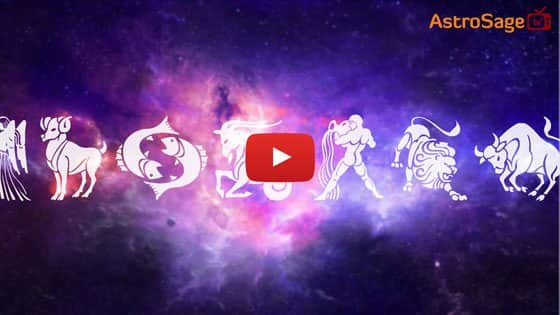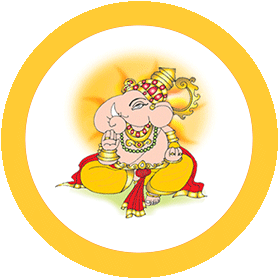The June 2083 calendar from AstroSage is here with all the information you need for the month. Take a peek at all the festivals, fasts, and holidays that you will encounter this 2083.
| Sunday | Monday | Tuesday | Wednesday | Thursday | Friday | Saturday |
|---|---|---|---|---|---|---|
|
Chaturdashi (S) 14 30 |
15 31 |
Pratipada (K) 1 1 |
Dvitiya (K) 2,3 2 |
Chaturthi (K) 4 3 |
Panchami (K) 5 4 |
Shashti (K) 6 5 |
|
Saptami (K) 7 6 |
Ashtami (K) 8 7 |
Navami (K) 9 8 |
Dashami (K) 10 9 |
Ekadashi (K) 11 10 |
Ekadashi (K) 11 11 |
Dwadashi (K) 12 12 |
|
Trayodashi (K) 13 13 |
Chaturdashi (K) 14 14 |
15 15 |
Pratipada (S) 1 16 |
Dvitiya (S) 2 17 |
Tritiya (S) 3 18 |
Chaturthi (S) 4 19 |
|
Panchami (S) 5 20 |
Shashti (S) 6 21 |
Saptami (S) 7 22 |
Ashtami (S) 8 23 |
Navami (S) 9 24 |
Dashami (S) 10 25 |
Ekadashi (S) 11 26 |
|
Dwadashi (S) 12,13 27 |
Chaturdashi (S) 14 28 |
15 29 |
Pratipada (K) 1 30 |
Dvitiya (K) 2 1 |
Tritiya (K) 3 2 |
Chaturthi (K) 4 3 |
Note: (K) - Krishna Paksha Tithi, (S) - Shukla Paksha Tithi
| June 2083 | Festivals |
|---|---|
| 3 Thursday | Sankashti Chaturthi |
| 11 Friday | Parama Ekadashi |
| 12 Saturday | Pradosh Vrat (K) |
| 13 Sunday | Masik Shivaratri |
| 15 Tuesday | Amavasya |
| 16 Wednesday | Mithuna Sankranti |
| 26 Saturday | Nirjala Ekadashi |
| 27 Sunday | Pradosh Vrat (S) |
| 29 Tuesday | Jyeshtha Purnima Vrat |
Monthly Calendar for June 2083
A calendar is a system of organizing dates, days, and times – to keep a record of significant fests and other important events. Various calendars are used around the world and have been prevalent for a long time. The most common way of timekeeping has been the Gregorian calendar with the seven days and twelve months. The days are Sunday, Monday, Tuesday, Wednesday, Thursday, Friday and Saturday; while the months: January, February, March, April, May, June, July, August, September, October, November, and December. Yet, different areas still prefer depending on traditional tier calendars for the calculation of their significant festivals and such. In the same vein, although the Gregorian Calendar is used for all administration tasks in India. However, for the computation of dates of our major festivals and fasts, the Panchang is taken into account.
The Hindu Panchang
Even though the Hindu Panchang is one of the more renowned calendars of India, however, numerous others are given priority in different states. For example:
- The Shalivahana Shaka, commonly called Shaka Samvat is majorly used in South India
- Vikram Samvat (Bikrami) is prevalent in Northern and Central regions of India
- Tamil calendar is used in Tamil Nadu
- Bengali calendar is widespread in the Bengal region
- The Malayalam calendar for Kerala, a schedule based on the solar cycle unlike all above, which emphasize the lunar cycle.
The Indian calendar is more complicated than the Gregorian one. While the latter adds days to a month every four years, to make up for the mismatch between the 354 lunar and 365 solar days; the former follows a more intricate pattern. In order to maintain the integrity of the lunar month, the Indian calendar 2083 includes an entire month (Adhik Mas) every few years through elaborate calculations.
Monthly 2083 Calendar
The Monthly 2083 calendar here uses the Gregorian pattern; however, the fasts and festivals are calculated based on the Indian calendar. Unlike the prevalent New Year falling at 1 January, the Hindu New Year falls in April-March, in the Hindu month of Chaitra. Let us take a look at how the months from both formats match and differ from each other:
- Chaitra (March–April)
- Vaishakh (April–May)
- Jyeshtha (May–June)
- Ashadha (June–July)
- Shravan (July–August)
- Bhadrapada (August–September)
- Ashwin (September–October)
- Karthik (October–November)
- Margashirsha (November–December)
- Pausha (December–January)
- Magha (January–February)
- Phalguna (February–March)
Jain Monthly Calendar 2083
The Jain calendar 2083, much like the Vikram and Shak Samvat Panchangs is a lunisolar calendar. It includes an extra month every three years to match the lunar days with the solar days, and its dates are known as Tithis. Here are the months of Jain monthly calendar 2083, and how they coincide with the Gregorian calendar:
- Kartak (October–November)
- Maagsar (November–December)
- Posh (December–January)
- Maha (January–February)
- Faagan (February–March)
- Chaitra (March–April)
- Vaishakh (April–May)
- Jeth (May–June)
- Ashadh (June–July)
- Shravan (July–August)
- Bhadarvo (August–September)
- Aaso (September–October)
Islamic Monthly Calendar 2083
Unlike the Hindu panchang and its various classifications which are lunisolar, the Islamic Calendar or Hijri Calendar is entirely a lunar one. It is based on the phases of the moon, and thus, there are only 354 or 355 days in the 12 months. As a result, the Islamic Calendar is shorter than the Gregorian one, and shifts according to it consistently. Each of the twelve months of the Islamic calendar has a meaning associated with it. These are:
| S.No. | Month in English | Month in Arabic | Meaning |
|---|---|---|---|
| 1 | Muharram | مُحَرَّم | forbidden |
| 2 | Safar | صَفَر | void |
| 3 | Rabi al-Awwal | رَبِيع ٱلْأَوَّل | the first spring |
| 4 | Rabi al-Thani (Rabī’ al-Ākhir) | ربيع الثاني or رَبِيع ٱلْآخِر | the second spring |
| 5 | Jumada al-Ula | جُمَادَىٰ ٱلْأُولَىٰ | the first of parched land |
| 6 | Jumada al-Akhirah | جُمَادَىٰ ٱلْآخِرَة | the last of parched land |
| 7 | Rajab | رَجَب | respect, honour |
| 8 | Shaban | شَعْبَان | scattered |
| 9 | Ramadan | رَمَضَان | burning heat |
| 10 | Shawwal | شَوَّال | raised |
| 11 | Zulqaedah | ذُو ٱلْقَعْدَة | the one of truce/sitting |
| 12 | Zulhijjah | ذُو ٱلْحِجَّة | the one of pilgrimages |
Tamil Monthly Calendar 2083
The Panchang commonly used in the state of Tamil Nadu and its residents is the Tamil Calendar. Its months coincide with the Hindu Panchang, like all other alliterations of the Panchang, however, the names differ slightly, as:
| S.No. | Month in Tamil | Transliteration | Hindu Month | Gregorian Calendar equivalent |
|---|---|---|---|---|
| 1 | சித்திரை | Chithirai | Chaitra | April to May |
| 2 | வைகாசி | Vaikāsi | Vaishakh | May to June |
| 3 | ஆனி | Āni | Jyeshtha | June to July |
| 4 | ஆடி | Ādi | Ashadha | July to August |
| 5 | ஆவணி | Āvaṇi | Shravana | August to September |
| 6 | புரட்டாசி | Puraṭṭāsi | Bhadrapada | September to October |
| 7 | ஐப்பசி | Aippasi | Ashwin | October to November |
| 8 | கார்த்திகை | Kārttikai | Karthik | November to December |
| 9 | மார்கழி | Mārkazhi | Margashirsha | December to January |
| 10 | தை | Tai | Pausha | January to February |
| 11 | மாசி | Māsi | Magha | February to March |
| 12 | பங்குனி | Paṅkuni | Phalguna | March to April |
Chinese Monthly Calendar 2083
The Chinese Monthly Calendar is a lunisolar calendar similar to the Hindu panchang in specific ways. Much like the Panchang, the Chinese calendar also has 354 days in a 12-month-year (common year), and to compensate for the mismatch in the lunar and solar days, they include an extra month almost once every three years, which is then called a long year. The months in the Chinese Calendar were originally named after natural phenomena – the Phenological names of the months are associated with fauna and plants. On the other hand, the Earthly Branch names of the months are given as per the ordering system of twelve Terrestrial Branches. The modern way of naming the months include numbers as a month name. Let us take a look at all these naming systems and how the Chinese months correspond with Gregorian calendar:
| S.No. | Gregorian Months | Phenological Month | Earthly Branch Month | Modern Month |
|---|---|---|---|---|
| 1 | January - February | 陬月; zōuyuè; ’corner month’; square of Pegasus month | 寅月; yínyuè; ’tiger month’ | 正月; zhēngyuè; ’first month’ |
| 2 | February - March | 杏月; xìngyuè; ’apricot month’ | 卯月; mǎoyuè; ’rabbit month’ | 二月; èryuè; ’second month’ |
| 3 | March - April | 桃月; táoyuè; ’peach month’ | 辰月; chényuè; ’dragon month’ | 三月; sānyuè; ’third month’ |
| 4 | April - May | 梅月; méiyuè; ’plum flower month’ | 巳月; sìyuè; ’snake month’ | 四月; sìyuè; ’fourth month’ |
| 5 | May - June | 榴月; liúyuè; ’pomegranate month’ | 午月; wǔyuè; ’horse month’ | 五月; wǔyuè; ’fifth month’ |
| 6 | June - July | 荷月; héyuè; ’lotus month’ | 未月; wèiyuè; ’goat month’ | 六月; liùyuè; ’sixth month’ |
| 7 | July - August | 蘭月; 兰月; lányuè; ’orchid month’ | 申月; shēnyuè; ’monkey month’ | 七月; qīyuè; ’seventh month’ |
| 8 | August - September | 桂月; guìyuè; ’osmanthus month’ | 酉月; yǒuyuè; ’rooster month’ | 八月; bāyuè; ’eighth month’ |
| 9 | September - October | 菊月; júyuè; ’chrysanthemum month’ | 戌月; xūyuè; ’dog month’ | 九月; jiǔyuè; ’ninth month’ |
| 10 | October - November | 露月; lùyuè; ’dew month’ | 亥月; hàiyuè; ’pig month’ | 十月; shíyuè; ’tenth month’ |
| 11 | November - December | 冬月; dōngyuè; ’winter month’;葭月; jiāyuè; ’reed month’ | 子月; zǐyuè; ’rat month’ | 十一月; shíyīyuè; ’eleventh month’ |
| 12 | December - January | 冰月; bīngyuè; ’ice month’ | 丑月; chǒuyuè; ’ox month’ | 臘月; 腊月; làyuè; ’end-of-year month’ |
We Hope That You Find This Article On Monthly Calendar Enlightening! Thank You For Being a Part Of AstroSage!

 ₹
₹ 











